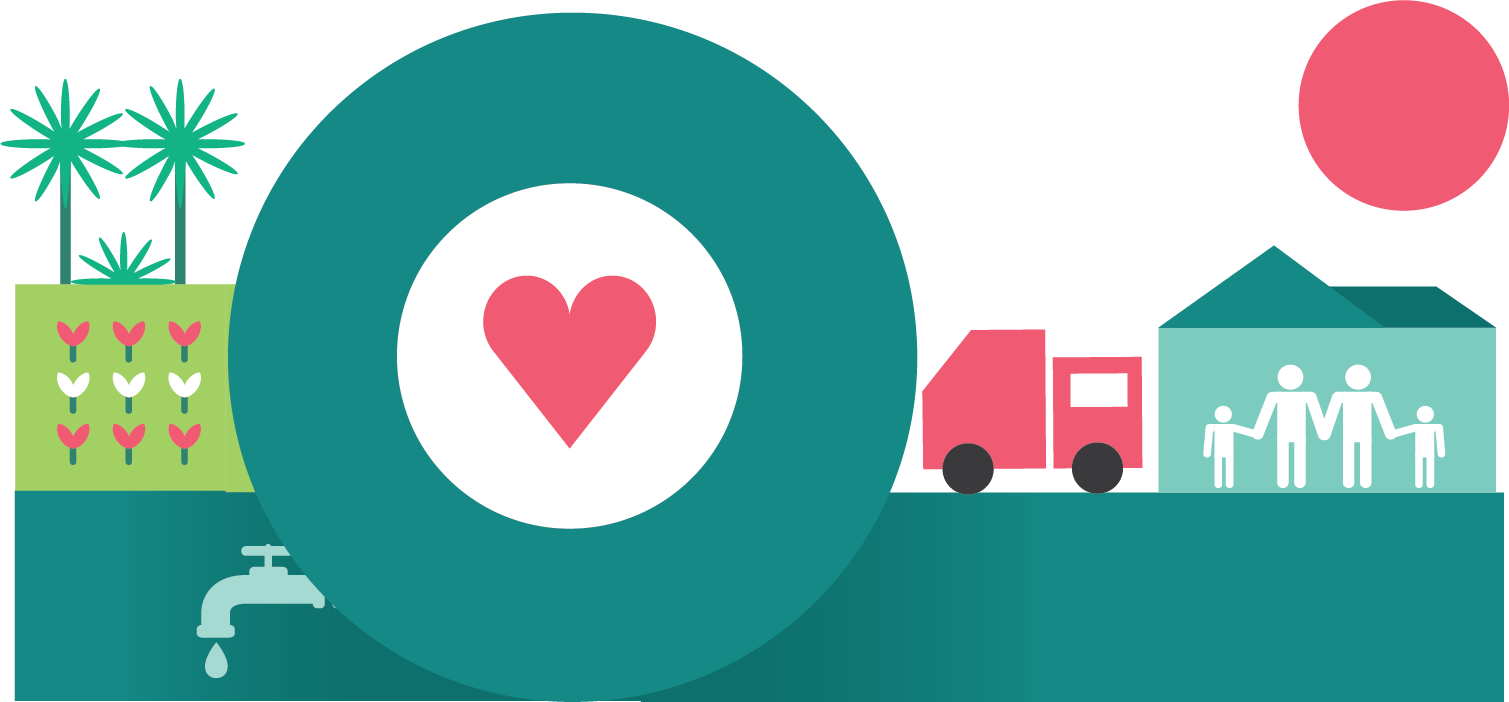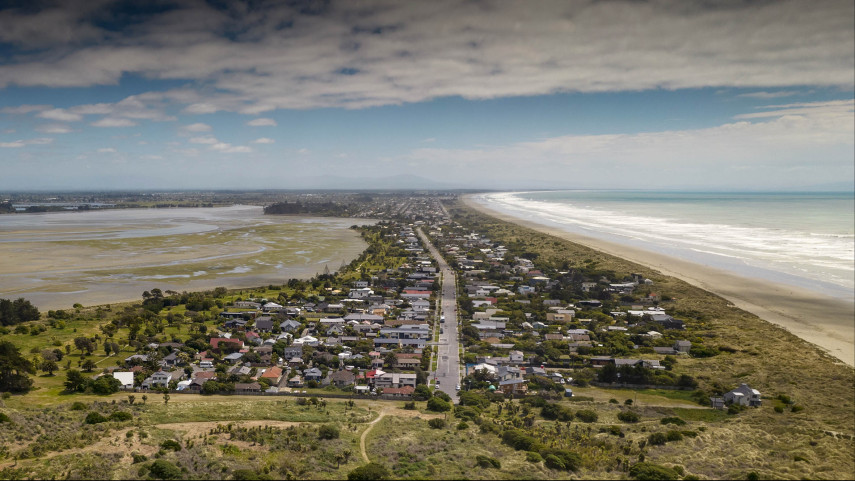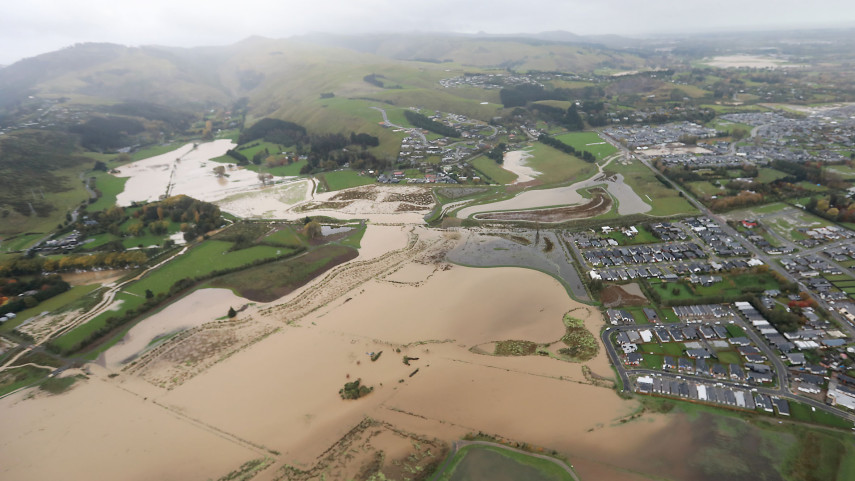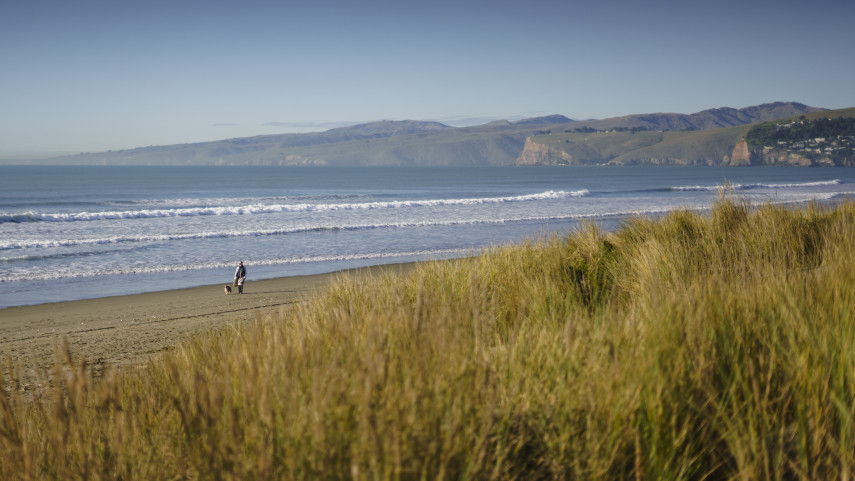Community outcomes and strategic priorities
Our Community Outcomes and Strategic Priorities(external link) guide all of the Council’s activities by providing a clear direction for everything we do – and climate resilience is built into it. We regularly monitor progress towards these outcomes, too.
The outcomes and priorities most closely driving our climate actions are:
- Community outcome: A green, liveable city
Our neighbourhoods and communities are accessible and well-connected, supporting our goals to reduce emissions, build climate resilience and protect and regenerate the environment, especially our biodiversity, water bodies and tree canopy. - Community outcome: A thriving prosperous city
Our city is a great place for people, business and investment, where we can all grow our potential, where enterprises are innovative and smart, and where, together, we raise productivity and reduce emissions. - Strategic priority: Reduce emissions as a Council and as a city
Reduce emissions as a Council and as a city, and invest in adaptation and resilience, leading a city-wide response to climate change while protecting our indigenous biodiversity, water bodies and tree canopy.
Climate Resilience Strategy
Our commitment to providing strong climate leadership in Christchurch is outlined in our Kia tūroa te Ao – Ōtautahi Christchurch Climate Resilience Strategy [PDF, 1.8 MB].
This strategy provides a high-level framework for our climate-related activities. Following extensive community engagement, greenhouse gas emission reduction targets have also been set for the district and our organisation.
A number of policies also support our climate actions:
- Sustainability Policy(external link)
- Procurement Policy(external link)
- Electric Vehicle Policy(external link)
- Food Resilience Policy(external link)
Strengthening communities
Knowing your neighbours, local meeting places, how to take part in community life and where to find support are all part of what makes Christchurch a great place to live, and will also help us all respond to climate change.
We’re helping foster new and deeper connections within and between communities and across our support networks. Our Strengthening Communities Together Strategy(external link) provides the high-level framework for this work, with its focus on four key areas: people, participation, place and preparedness.
Coastal Hazards Adaptation Programme
Sea-level rise, rising groundwater, coastal flooding and coastal erosion are key risks for many parts of our district. Coastal hazards can have significant impacts on buildings, infrastructure like roads and pipes, parks, waterways and important cultural and heritage sites.
Our Coastal Hazards Adaptation Planning programme(external link) has been working with communities to better understand the local impacts of coastal hazards and to develop plans to reduce the risks to public infrastructure. Planning has started with communities in the Whakaraupō Lyttelton Harbour and Koukourarata Port Levy areas.
Civil Defence and Emergency Management
Climate change is driving extreme weather here and around the world. Improving our ability to understand and reduce the risks, and to rapidly respond when needed, is vital for the wellbeing of our communities.
The Council works with a wide range of partners to prepare for, and respond to, emergencies. Through our Christchurch Civil Defence Emergency Management(external link) work, we help communities and a broad network of support organisations to understand our local risks and develop response plans.
We also train emergency response teams and volunteers who can stand up when needed, working closely with national and local emergency services such as the police, fire and regional civil defence.
Smart Christchurch
Our Smart Christchurch Programme(external link) is exploring new technology, innovative approaches and solutions to help make our city smarter, safer and more sustainable.
To adequately address climate change, we need to shift our economy towards a regenerative one that’s good for people and the planet. The Council’s economic development agency, ChristchurchNZ, has adopted a Regenerative Economy Vision(external link) for Christchurch and is helping to drive this. The ChristchurchNZ Business Clusters(external link) are an example of how we’re helping local innovators connect and grow solutions to our biggest challenges.
Community funding
A range of Council funds are available for households, community groups, schools, social enterprises and businesses helping to reduce environmental impacts, restore nature and improve resilience.
We've been supporting community-led climate action through our Sustainability Fund, biodiversity protection through our Biodiversity Fund, waste reduction through our Waste Minimisation Fund, and community resilience through our Strengthening Communities Fund.
Learn more about our funding opportunities(external link).
Timeline of our climate actions
2002
- Impacts of climate change on Christchurch report – Completed one of the first community climate impact assessments undertaken in New Zealand.
2008
- Burwood Landfill Gas Utilisation Project. Established a green energy supply for QEII swimming pool and the Council’s Civic Offices saving around $1.5 million each year and 5,000 tonnes of greenhouse gas emissions per year. This project resulted in New Zealand’s first carbon credit sale to a private international buyer under the Kyoto Protocol.
2009
- Kerbside bin collection of organics, recycling and rubbish – Christchurch was one of the first cities in New Zealand to collect household organics. Currently, the Council composts 50,000 tonnes and recycles 28,000 of material collected each year.
2010
- Climate Smart Strategy adopted, helping to influence the recovery of Christchurch following the Canterbury Earthquakes. Te Hononga, the Council's Hereford Street Civic Offices, was awarded a Greenstar 6 rating by the New Zealand Green Building Council, certifying it as one of the greenest office buildings in New Zealand.
2011
- Council introduced Flood Management Areas for Christchurch that require new buildings in these areas to have higher floor levels to reduce the impacts of flooding.
2012
- The switching of streetlights to energy-efficient LEDs commenced. Now all the city’s 35,000 lights have been upgraded saving $1.5 million each year in energy and maintenance costs and 1,150 tonnes of greenhouse gas emissions.
2013
- The Council’s Build Back Smarter service started helping 15,000 Christchurch homes to be repaired in healthy and energy-efficient ways.
- Council joined the Rockefeller Foundation 100 Resilient Cities Network exchanging ideas with leading cities throughout the world.
- World Green Building Council awards the Council with an international sustainability award for the green rebuild of Christchurch.
2015
- Resilient Greater Christchurch Strategy helped to guide responses to key risks and stresses for Greater Christchurch.
2017
- The Council established the Innovation and Sustainability Fund to support community-led climate action.
2018
- Resource Efficiency and Greenhouse Gas Emissions Policy adopted to direct all parts of the Council to measure and reduce emissions and environmental impacts.
2019
- Declared a climate and ecological emergency following community engagement. Christchurch was one of the first councils in New Zealand to make this declaration.
- Council set the target to be net carbon zero for its Council operations by 2030.
- Council set emissions reduction targets for Christchurch District to half emissions by 2030 and to be net carbon zero by 2045.
2020
- The Council established the Coastal Hazards Adaptation Planning Programme to enhance understanding and develop responses with affected communities.
- Tūranga Library was awarded a Greenstar 5 rating from the New Zealand Green Building Council for its energy-efficient and sustainable design.
2021
- Climate Resilience Strategy provided a high-level framework for ongoing Council climate actions.
2022
- Christchurch and Banks Peninsula Climate Risk Screening identified key climate-related risks to our natural and built environment.
- Canterbury Regional Climate Change Risk Assessment – identified key climate risks for our region under the Canterbury Mayoral Forum.
2023
- Te Kounga Paparangi, Ngāi Tahu Climate Change Action Plan provided a pathway for climate action in Ngāi Tahu communities throughout the South Island.
2024
- It's Time, Canterbury Climate Change Partnership Plan – established a regional collaboration and joint climate action plan under the Canterbury Mayoral Forum.
2002
- Impacts of climate change on Christchurch report – Completed one of the first community climate impact assessments undertaken in New Zealand.
2008
- Burwood Landfill Gas Utilisation Project. Established a green energy supply for QEII swimming pool and the Council’s Civic Offices saving around $1.5 million each year and 5,000 tonnes of greenhouse gas emissions per year. This project resulted in New Zealand’s first carbon credit sale to a private international buyer under the Kyoto Protocol.
2009
- Kerbside bin collection of organics, recycling and rubbish – Christchurch was one of the first cities in New Zealand to collect household organics. Currently, the Council composts 50,000 tonnes and recycles 28,000 of material collected each year.
2010
- Climate Smart Strategy adopted, helping to influence the recovery of Christchurch following the Canterbury Earthquakes. Te Hononga, the Council's Hereford Street Civic Offices, was awarded a Greenstar 6 rating by the New Zealand Green Building Council, certifying it as one of the greenest office buildings in New Zealand.
2011
- Council introduced Flood Management Areas for Christchurch that require new buildings in these areas to have higher floor levels to reduce the impacts of flooding.
2012
- The switching of streetlights to energy-efficient LEDs commenced. Now all the city’s 35,000 lights have been upgraded saving $1.5 million each year in energy and maintenance costs and 1,150 tonnes of greenhouse gas emissions.
2013
- The Council’s Build Back Smarter service started helping 15,000 Christchurch homes to be repaired in healthy and energy-efficient ways.
- Council joined the Rockefeller Foundation 100 Resilient Cities Network exchanging ideas with leading cities throughout the world.
- World Green Building Council awards the Council with an international sustainability award for the green rebuild of Christchurch.
2015
- Resilient Greater Christchurch Strategy helped to guide responses to key risks and stresses for Greater Christchurch.
2017
- The Council established the Innovation and Sustainability Fund to support community-led climate action.
2018
- Resource Efficiency and Greenhouse Gas Emissions Policy adopted to direct all parts of the Council to measure and reduce emissions and environmental impacts.
2019
- Declared a climate and ecological emergency following community engagement. Christchurch was one of the first councils in New Zealand to make this declaration.
- Council set the target to be net carbon zero for its Council operations by 2030.
- Council set emissions reduction targets for Christchurch District to half emissions by 2030 and to be net carbon zero by 2045.
2020
- The Council established the Coastal Hazards Adaptation Planning Programme to enhance understanding and develop responses with affected communities.
- Tūranga Library was awarded a Greenstar 5 rating from the New Zealand Green Building Council for its energy-efficient and sustainable design.
2021
- Climate Resilience Strategy provided a high-level framework for ongoing Council climate actions.
2022
- Christchurch and Banks Peninsula Climate Risk Screening identified key climate-related risks to our natural and built environment.
- Canterbury Regional Climate Change Risk Assessment – identified key climate risks for our region under the Canterbury Mayoral Forum.
2023
- Te Kounga Paparangi, Ngāi Tahu Climate Change Action Plan provided a pathway for climate action in Ngāi Tahu communities throughout the South Island.
2024
- It's Time, Canterbury Climate Change Partnership Plan – established a regional collaboration and joint climate action plan under the Canterbury Mayoral Forum.





